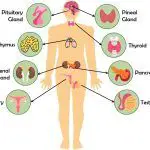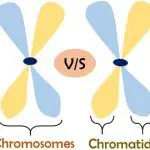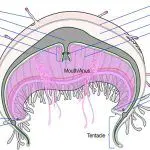An example of the adaptation are some plants which have adapted their life in the deserts or the Grey whales who migrate thousands of miles every year from the cold Arctic Ocean to the coast of Mexico. However, an example of evolution is Darwin's Finches, which are the finches on the Galapagos Islands, where all have developed different beaks, originally these finched used to … [Read more...] about Difference Between Adaptation and Evolution
Zoology
Difference Between Endocrine and Exocrine Glands
Glands are the ingrowth of the top layer of the skin i.e. epithelium. This ingrowth can have a tubular, simple, branched or compound formation. They are the group of cells that release a chemical substance as per the demand of the body. We can divide them into two categories- Endocrine and Exocrine. These two play a critical role in controlling the body, its growth and … [Read more...] about Difference Between Endocrine and Exocrine Glands
Difference Between Chromosomes and Chromatid
The chromosome is the most condensed form of DNA, which remains packed into a thread-like structure. On the other hand, a chromatid is the one-half copy of the newly formed chromosome, joined by the centromere to the original chromosome. Secondly, the chromosomes are present every time in the nucleus of each cell and thus carry the genetic material. While chromatids form … [Read more...] about Difference Between Chromosomes and Chromatid
Difference Between Polyp and Medusae
The phylum Cnidaria has about 13,000 different species. The cnidarians come into two basic forms - polyp and medusae. The polyps are sessile tubular-bodied organisms which remain attached to the solid anchor like rocks. The main characteristic of them is the single, circular and terminal mouth that faces upwards to the water. They are primitive organisms that lack sense … [Read more...] about Difference Between Polyp and Medusae
Difference Between SNP and Mutation
SNP (Single nucleotide polymorphism) and mutation are both related to the structural changes in the genome. While researching, people often use these two terms interchangeably. However, scientifically, one must be very careful while using them. All the individuals except for the twins have their own version of genome sequences. These variations are mainly due to the SNPs. … [Read more...] about Difference Between SNP and Mutation




